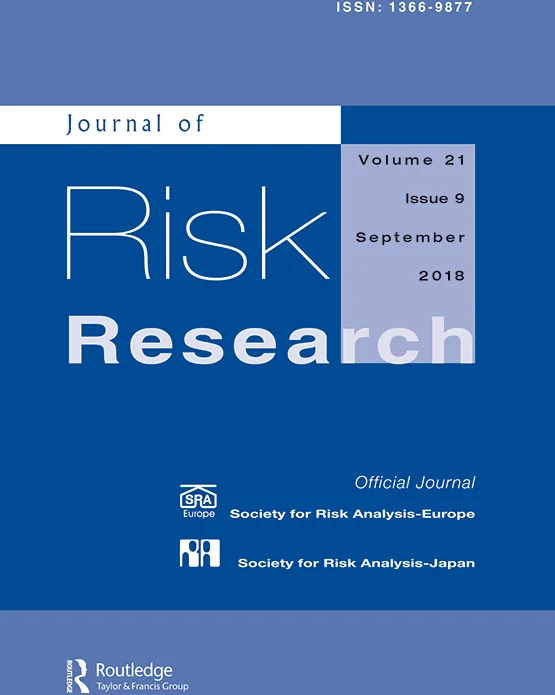新冠肺炎危机沟通中的民族主义:来自阿曼的证据
IF 1.7
4区 管理学
Q1 SOCIAL SCIENCES, INTERDISCIPLINARY
引用次数: 0
摘要
摘要对政府在新冠肺炎危机沟通中采取的修辞策略的有效性研究较少。本研究旨在回答以下两个问题:(1)在阿曼新冠肺炎危机传播的官方阿拉伯语话语中,使用了哪些与语言相关的修辞策略?(2) 与西格的危机沟通最佳实践模式相一致,这些与精神气质相关的修辞策略在多大程度上有效地提供了成功的危机应对沟通?数据来自阿曼新冠肺炎最高委员会新闻发布会。数据包括2020年4月2日至2020年5月7日期间的前六次新闻发布会。研究表明,阿曼新冠肺炎危机传播表现出多种与行为相关的修辞策略,主要是建立、强化和恢复说话人的可信度。该研究还表明,阿曼的新冠肺炎危机沟通从修辞角度来看是有效的,因为它使用了与Seeger诚实、坦率和开放的最佳实践非常一致的修辞策略。本文的主要建议之一是呼吁将Seeger的模型扩展到该模型目前没有解决的领域,即说话者的能力和信息的可信度。本文章由计算机程序翻译,如有差异,请以英文原文为准。
Ethos in COVID-19 crisis communication: evidence from Oman
Abstract There is little research on the effectiveness of the rhetorical strategies adopted by governments in COVID-19 crisis communication. This study aimed to answer the following two questions: (1) What are the ethos-related rhetorical strategies used in the official Arabic discourse of COVID-19 crisis communication in Oman? (2) Aligned with Seeger’s model of best practice in crisis communication, to what extent are these ethos-related rhetorical strategies effective in delivering a successful crisis response communication? The data came from Oman’s COVID-19 Supreme Committee press conference. The data included the first six press conferences covering the period from April 2, 2020 to May 7, 2020. The study showed that Oman’s COVID-19 crisis communication exhibits a variety of ethos-related rhetorical strategies, mainly to establish, reinforce and restore speaker’s credibility. The study also showed that Oman’s COVID-19 crisis communication was effective from a rhetorical perspective because it made use of rhetorical strategies that aligned well with Seeger’s best practice of honesty, candor and openness. One of the key recommendations of this paper is to call for Seeger’s model to be expanded to cover areas that this model does not currently address, namely speaker’s competence and message believability.
求助全文
通过发布文献求助,成功后即可免费获取论文全文。
去求助
来源期刊

Journal of Risk Research
SOCIAL SCIENCES, INTERDISCIPLINARY-
CiteScore
12.20
自引率
5.90%
发文量
44
期刊介绍:
The Journal of Risk Research is an international journal that publishes peer-reviewed theoretical and empirical research articles within the risk field from the areas of social, physical and health sciences and engineering, as well as articles related to decision making, regulation and policy issues in all disciplines. Articles will be published in English. The main aims of the Journal of Risk Research are to stimulate intellectual debate, to promote better risk management practices and to contribute to the development of risk management methodologies. Journal of Risk Research is the official journal of the Society for Risk Analysis Europe and the Society for Risk Analysis Japan.
 求助内容:
求助内容: 应助结果提醒方式:
应助结果提醒方式:


